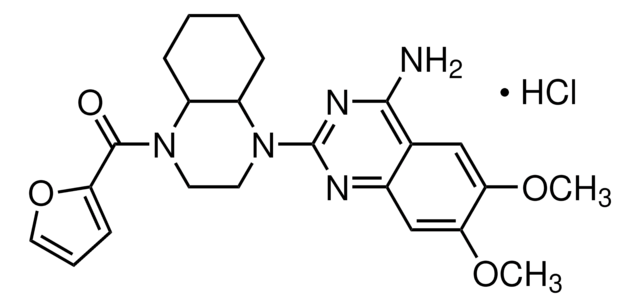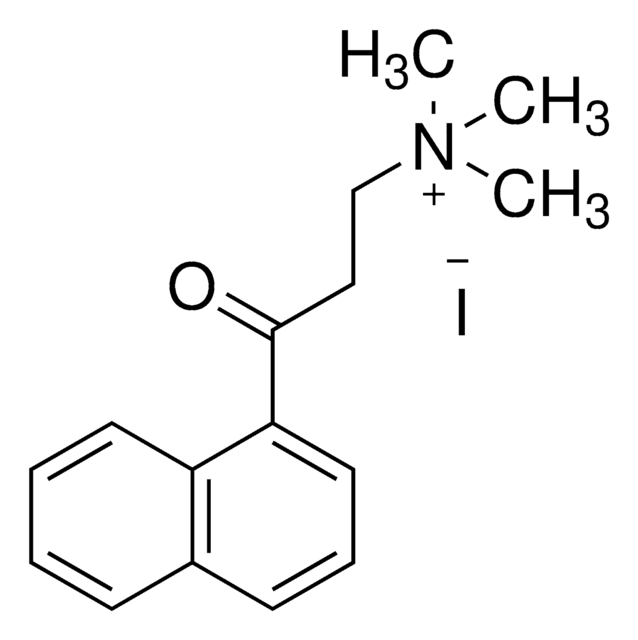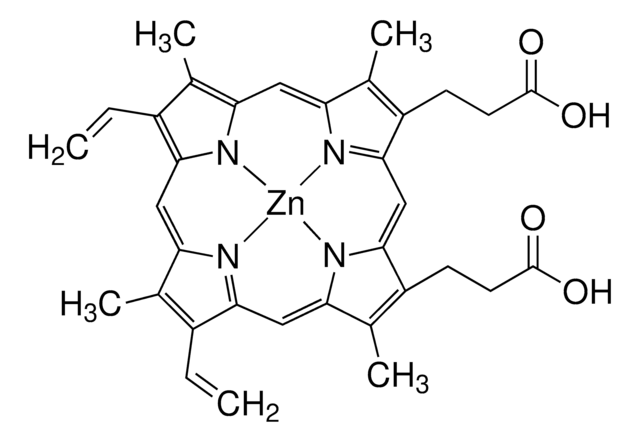B134
BMY 7378 dihydrochloride
≥98% (HPLC), solid
Synonyme(s) :
8-[2-[4-(2-Methoxyphenyl)-1-piperazinyl]ethyl]-8-azaspiro[4.5]decane-7,9-dione dihydrochloride
About This Item
Produits recommandés
Pureté
≥98% (HPLC)
Forme
solid
Couleur
white
Solubilité
H2O: >5 mg/mL
Chaîne SMILES
Cl.Cl.COc1ccccc1N2CCN(CC2)CCN3C(=O)CC4(CCCC4)CC3=O
InChI
1S/C22H31N3O3.2ClH/c1-28-19-7-3-2-6-18(19)24-13-10-23(11-14-24)12-15-25-20(26)16-22(17-21(25)27)8-4-5-9-22;;/h2-3,6-7H,4-5,8-17H2,1H3;2*1H
Clé InChI
NIBOMXUDFLRHRV-UHFFFAOYSA-N
Informations sur le gène
human ... ADRA1D(146) , HTR1A(3350)
Actions biochimiques/physiologiques
Caractéristiques et avantages
Informations légales
Code de la classe de stockage
11 - Combustible Solids
Classe de danger pour l'eau (WGK)
WGK 3
Point d'éclair (°F)
Not applicable
Point d'éclair (°C)
Not applicable
Équipement de protection individuelle
Eyeshields, Gloves, type N95 (US)
Certificats d'analyse (COA)
Recherchez un Certificats d'analyse (COA) en saisissant le numéro de lot du produit. Les numéros de lot figurent sur l'étiquette du produit après les mots "Lot" ou "Batch".
Déjà en possession de ce produit ?
Retrouvez la documentation relative aux produits que vous avez récemment achetés dans la Bibliothèque de documents.
Articles
Review alpha 1 adrenoceptors as well as their agonists, antagonists, and tissue expression patterns. We suggest several modulators and alternatives for working with a-1 adrenoreceptors.
Notre équipe de scientifiques dispose d'une expérience dans tous les secteurs de la recherche, notamment en sciences de la vie, science des matériaux, synthèse chimique, chromatographie, analyse et dans de nombreux autres domaines..
Contacter notre Service technique







